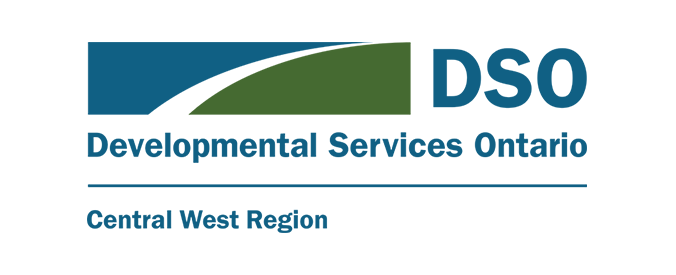What Are Developmental Services and Supports?
In Ontario, adults can apply for different kinds of developmental services and supports. This includes residential, community participation, Passport, caregiver respite, and specialized supports. This section of our website explains more about these kinds of support. This applies to MCCSS-funded services for adults only.
Specialized Supports
Specialized supports are provided by local agencies and funded by the Ministry of Children, Community and Social Services (MCCSS). Agencies offer different types of specialized services and supports across the province. Some of the types of specialized services and supports that may be available to you include:
Adult protective service worker (APSW)
An APSW can meet regularly with you to help you:
- learn about community supports and ministry-funded services.
- identify your strengths and needs.
- stay informed about supports and direct you to the ones you need.
- develop problem-solving and life skills, like budgeting and learning to use public transportation.
In some communities, adult protective service workers have different titles, such as service coordinator or adult support worker.
Behavioural Services
Behavioural consultants can help you by:
- assessing your ability to be independent and recommend skills for daily life.
- assisting you in developing and evaluating your behaviour support plan.
- providing behavioural strategy training to your caregiver and other supports.
- teaching you support strategies to prevent a crisis.
This service is determined by evaluating your needs and may be provided to you directly or through a group setting.
Case Management Services
A case manager works with you and your family to coordinate formal and informal services and supports to meet your unique goals. These services are often provided on a short-term basis.
Person-directed Planning
A person-directed plan reviews your individual dreams and goals. With the support of an agency or other support person, a person-directed plan helps you find the tools you need to make it happen.
Creating a person-directed plan will help you:
- Define a vision of your future life.
- Identify your strenths and gifts.
- Set goals and make choices.
- Find ways for you to participate in communities
- Locate people who can achieve your dreams.
Passport Program
The Passport program is a reimbursement program that helps adults with a developmental disability participate in their community. You can either choose to receive the money directly, or purchase your supports and services through an agency. Passport provides funding for services and supports so you can:
- take part in community classes or recreational programs.
- develop work, volunteer, and daily life skills.
- hire a support worker.
- create your own life plan (this is called person-directed planning) to reach your goals.
- get temporary respite for your caregiver(s).
Housing Supports
Housing supports are provided by agencies and funded by the Ministry of Children, Community and Social Services (MCCSS). Here are some types of housing supports that may be available in your community:
Group homes and group living supports
- You will live with a few unrelated people
- Provide you support for up to 24 hours per day
- Accommodate you based on your needs and abilities
Supported independent living
- You live more independently
- Someone helps you with daily activities
- You receive between 2 to 10 hours of support during the day every week
- You must be able to be alone overnight and do things like shower or brush your teeth without help
Host family home/associate living support
- You live with a family who can provide you with care and supports
- You are encouraged to become an active member of the household
- You are matched with a family that has similar interests, needs and lifestyle
DSO Housing Navigator
In addition to the ministry-funded supports provided by agencies a DSO Housing Navigator is available to families seeking information on non-funded housing options.
A DSO housing navigator in your area can help you understand your housing options by:
- providing you with resources and organizations that can help you create a housing plan
- providing you with a toolkit of resources to help with a housing plan
- connecting you with family support networks to share information
- supporting innovative approaches and planning for housing, beyond the traditional models available
Community Participation Supports
If you are looking to connect to your community through meaningful experiences that promote your personal interests, skills, growth and development, the Ministry of Children, Community and Social Services (MCCSS) funds local agencies who provide Community Participation Supports.
Agencies can help you participate in the following community activities:
- recreation
- volunteering
- life skills
- employment opportunities

